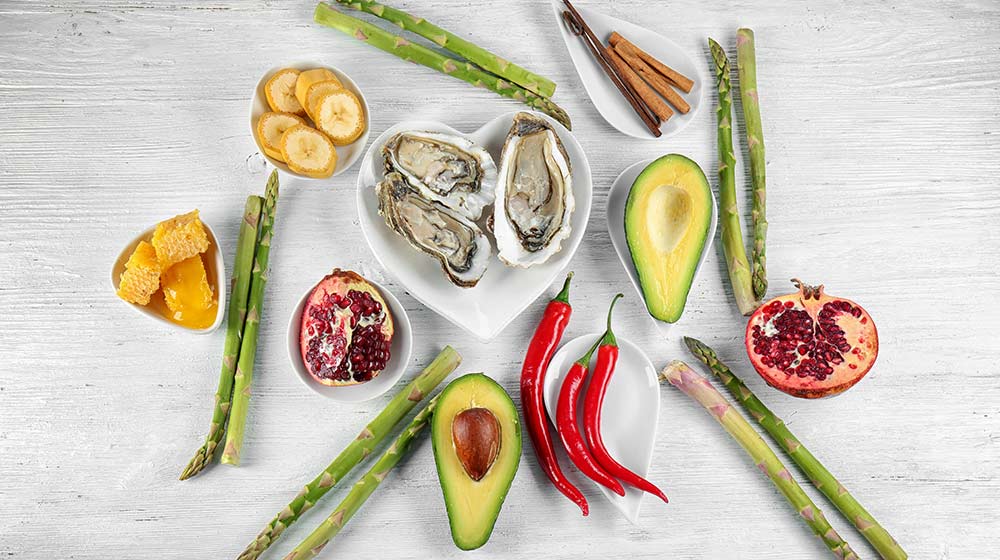
Hormone Health TRT


Maintaining balanced hormone levels is crucial for your health and well-being, and testosterone plays a key role in this equation for both men and women. However, various dietary choices can inadvertently contribute to the suppression of testosterone production, leading to potential health issues.
In this article, we’ll delve into nutrition and explore seven testosterone-killing foods that might unknowingly hinder your hormonal balance. Fear not, though, as we’ll also provide insights into healthier alternatives that can help support and enhance testosterone levels, ensuring that your dietary choices align with your goal of fostering overall well-being.
Let's TalkWhether you’re aiming to boost athletic performance, enhance muscle mass, or simply optimize your hormonal health, understanding these testosterone-killing culprits and their nutritious alternatives is a crucial step toward achieving your desired health outcomes.
Testosterone, an essential hormone in both men and women, has various crucial bodily functions. Primarily, it’s most often thought of as the male sex hormone playing a critical role in the development of reproductive tissues, sperm production, maintenance of muscle mass and bone density, regulation of fat distribution, libido, and sexual function. In women, it contributes to similar physiological processes but in lower doses.
When testosterone levels drop below normal ranges, a condition known as low testosterone or hypogonadism can be made in the conventional sense. But first, let’s talk about what is normal and what is optimal. Normal ranges in western medicine capture 95% of the population’s health which is not that robust these days. We always want to strive for optimal levels in order to stave off chronic disease and optimize performance. That’s where functional medicine and Opt Health come in because you can have a testosterone level at the bottom of a “normal” range, far from optimal. This would explain why you feel the same symptoms as someone who is hypogonadal. For ease, we often refer to low testosterone as “low T.” Recognizing and addressing low T is crucial for maintaining overall health and well-being, so if you’re not feeling your best self, it might be worth checking a complete hormone panel to see if low T is the culprit.
Now, let’s talk about symptoms. When it comes to low testosterone, your body has a way of sending up smoke signals, and it’s essential to pay attention. There are ten key symptoms of Low-T to look out for:
So why does this happen? Stress, lack of sleep, and poor diet can alter hormone production. And here’s the plot twist – some of the foods you love might be the antagonists behind the scenes. Let’s dive into them now.
Excessive sugar intake negatively impacts testosterone levels through several mechanisms. According to a 2013 study, testosterone levels can drop as much as 25% when consuming large amounts of sugar. High sugar consumption can lead to insulin resistance, elevated cortisol levels, and inflammation, all contributing to hormonal imbalance. Chronic overconsumption of sugar can also lead to diabetes, and those with diabetes are twice as likely to suffer from low testosterone.
Also, sugar is linked to obesity and metabolic syndrome, both associated with lower testosterone levels. The disruption of hormonal signaling, particularly the relationship between insulin and Sex Hormone-Binding Globulin (SHBG), further contributes to reduced testosterone. Understanding the intricate connection between sugar consumption, hormonal balance, and broader health implications underscores the importance of mindful dietary choices.
You know how a lot of dietary information tends to steer you away from simple carbs? Well, it’s not just about the extra padding around your waist. A study with 125 guys from Taiwan in 2018 found that eating lots of bread, pastries, and sugary goodies could actually lower testosterone levels. So, if you want to keep those testosterone gears running smoothly, go easy on the pastries and refined grains.
Vegetable oils can impact testosterone levels through various mechanisms:
Flaxseed, known for its abundance of omega-3 to omega-6 fats, fiber, and essential vitamins and minerals, presents a complex relationship with testosterone levels. While it boasts numerous health benefits, certain research findings hint at a potential association between flaxseed consumption and a decrease in testosterone levels, particularly in specific populations.
The culprit here appears to be flaxseed’s high lignan content—aka phytoestrogens or plant compounds known to bind with testosterone, leading to its excretion from the body. It’s crucial to clarify that flaxseed isn’t necessarily the enemy but rather a potential factor to be mindful of. To truly grasp the intricacies of how flaxseed influences testosterone, more in-depth, large-scale studies are needed.
Nuts, once considered a nutritional powerhouse, do offer a mix of fiber, fats, and essential minerals such as folate, selenium, and magnesium. However, the fat composition in certain nuts may negatively impact testosterone levels if you over consume them. Most nuts, like walnuts, pine nuts, peanuts, pecans, and almonds, contain higher levels of PUFAs. And as we mentioned above, PUFAs have certain health benefits but they can also increase oxidative stress in tissues when you get too many omega-6 PUFAs over omega-3 PUFAs, potentially leading to a decline in testosterone levels amongst other things.
For those mindful of these omega-6 to omega-3 ratios, opting for nuts rich in monounsaturated fatty acids (MUFAs) might be a smarter snacking choice. Nuts like hazelnuts, cashews, or macadamia nuts fall into this category and can be part of a diet that supports better hormonal balance. As with any dietary consideration, moderation and a diverse intake of nutrients remain key to reaping the overall health benefits of nuts.
Alcohol can be a real party pooper when it comes to testosterone levels, and the science behind it isn’t all that fun. Research shows that alcohol consumption can disrupt the normal functioning of your hypothalamus, pituitary gland, and testes—the hormonal power trio. Testosterone levels take a nosedive when these vital organs can’t produce hormones effectively.
In a recent study, healthy men were given a daily dose of ethanol equivalent to one pint of whiskey per day. After just three days, their testosterone levels started heading south. Fast forward to day 30, and their testosterone levels were chilling in the same low zone as your typical heavy drinker. So, if you’re aiming to keep those testosterone levels in check, it might be a good idea to watch how much you’re raising that glass.
Licorice root, commonly used as a sweetener in candies and beverages, has recently come under scrutiny for its potential impact on hormone levels, particularly testosterone. A 2003 study involving 25 men who consumed 7 grams of licorice root daily reported a significant 26% drop in testosterone levels after just one week. However, the picture gets a bit more complex with a 2021 animal study indicating that licorice extract might actually help raise testosterone levels. So, for now, the relationship between licorice root and testosterone remains an area that requires further investigation to determine the full scope of its impact on hormonal balance.
Now that we’ve talked about the negative side, let’s discuss elevating your testosterone levels. If you find that your testosterone levels are on the lower side, implementing lifestyle adjustments and, if needed, considering medication can make a significant impact. These lifestyle changes may involve incorporating more of the following foods known for their testosterone-boosting properties:
Red meat, especially from regeneratively raised and wild-sourced animals, isn’t just a nutritional powerhouse; it’s also a natural ally for testosterone health. Unlike plant-based sources, red meat boasts exceptional bioavailability, meaning your body readily absorbs its key nutrients. This includes but not limited to:
Remember, choosing organic, regeneratively raised, and grass fed/finished red meats maximizes the nutrient density and minimizes or eliminates exposures to harmful chemicals and antibiotics that can be transferred to you. Same goes for other animal and agricultural foods.
Beyond individual nutrients, the overall nutrient profile of regeneratively raised meat is noteworthy. These animals graze on diverse grasslands, converting unusable energy into energy for humans all while consuming a wide range of plants rich in trace minerals and beneficial compounds often missing in industrially farmed meat. This unique nutritional synergy can further contribute to optimal testosterone levels.
Think of eggs as nature’s multivitamin, packed with nutrients that can support optimal hormone function. A single whole egg boasts a wide range of nutrients, including:
One research study compared eating whole eggs vs. just egg whites after workouts for 12 weeks in young men who already lifted weights regularly. Here’s what they found:
So, while both egg options helped with muscle building, whole eggs seemed to offer some extra benefits for strength, testosterone, and body fat. This is likely due to the nutrients in the yolks, like healthy fats and vitamins.
Unlike many plant-based sources, the nutrients in eggs are highly bioavailable, meaning your body easily absorbs them. It’s like nature pre-packaged everything for optimal utilization.
So, the next time you’re looking for a natural way to support your testosterone health, remember the humble egg. It might just be the tiny nutritional powerhouse you’ve been missing.
Fatty fish serves as a potent ally in boosting testosterone levels, primarily due to its rich content of omega-3 fatty acids, particularly docosahexaenoic acid (DHA) and eicosapentaenoic acid (EPA).
Firstly, these fatty acids contribute to the structural integrity of cell membranes, facilitating efficient hormone signaling within the body, including the production and regulation of testosterone. Moreover, omega-3s exhibit anti-inflammatory properties, helping to mitigate chronic inflammation that can adversely affect the endocrine system.
If you don’t like eating fish or cant get regenerative meats,, consider a high quality fish oil supplement instead. In 2020, a study tracking individuals with obesity discovered that the consumption of fish oil rich in omega-3 fatty acids led to an increase in testosterone levels, specifically in men, with no similar effect observed in women. The study highlighted the positive influence of DHA, a specific type of fatty acid abundant in fish.
Additionally, fatty fish is an excellent source of vitamin D, a nutrient closely linked to testosterone production. Vitamin D receptors are present in cells responsible for testosterone synthesis, and an adequate supply of vitamin D is essential for optimal testosterone levels.
A 2019 literature review suggests that honey may positively impact testosterone levels in men through mechanisms such as increased luteinizing hormone production, improved viability of Leydig cells, reduced oxidative damage in Leydig cells, and inhibition of aromatase activity in the testes. These factors, if validated through further research, could contribute to a potential boost in testosterone. However, it’s important to note that while the findings are promising, additional studies involving human subjects are needed to firmly establish the link between honey consumption and testosterone levels. And all honeys are not created equal. Caveat emptor.
Avocados contribute to boosting testosterone levels through their rich content of healthy fats and nutrients. Apart from providing magnesium, avocados are noteworthy for their boron content—a mineral that studies suggest may play a role in supporting testosterone levels. A 2020 review highlighted the potential of boron in protecting against testosterone degradation, further underlining the significance of avocados in promoting hormonal balance. With their combination of beneficial fats and essential minerals, avocados stand out as a powerhouse supporting testosterone health.
Some fruits, such as berries, cherries, and pomegranates, are rich in flavonoid antioxidants. These compounds have the potential to act as protective guardians for the cells responsible for testosterone production, shielding them from harm and potentially enhancing testosterone levels. Additionally, these fruits may contribute to reducing inflammation associated with obesity, a factor known to decrease testosterone levels.
Shellfish, including oysters, mussels, and clams, are renowned for their ability to potentially boost testosterone levels due to their impressive nutritional profile. These shellfish are particularly rich in several key nutrients that play a role in supporting hormonal health:
Maintaining hormonal balance, especially in terms of testosterone, is crucial for overall health and well-being in both men and women. This article has explored seven testosterone-suppressing foods that individuals should be mindful of in their dietary choices. However, the journey doesn’t end there; understanding these culprits is only half the battle. We’ve also provided valuable insights into healthier alternatives that can support and enhance testosterone levels. Whether you’re striving for athletic performance, muscle mass, or optimal hormonal health, making informed choices about what you consume is a pivotal step toward achieving your health goals.
At Opt Health, we offer a comprehensive 360-degree approach to health. From tackling low testosterone and erectile dysfunction to managing insulin resistance and hair loss, Opt Health is committed to providing personalized and effective solutions. Join Opt Health today for a proactive and informed approach to health.
There is a lot to think about – we understand. If you have questions about how to boost testosterone levels, TRT or any of the conditions discussed here, connecting with a doctor in a discrete setting has never been easier.
Opt Health is a telehealth platform that reconnects men with wellness, fitness, strength, and sexual vitality through scientific preventive medicine. From your own home, you can schedule with a physician, meet one-on-one via video conference, receive test results, and have medications delivered to your door.
For questions, inquiries, or appointments, don’t hesitate to contact us. Get personalized support and insight from top-tier physicians available 24/7.
Your health, your terms. Discover how personalized care can transform not just the way you feel, but how you live.